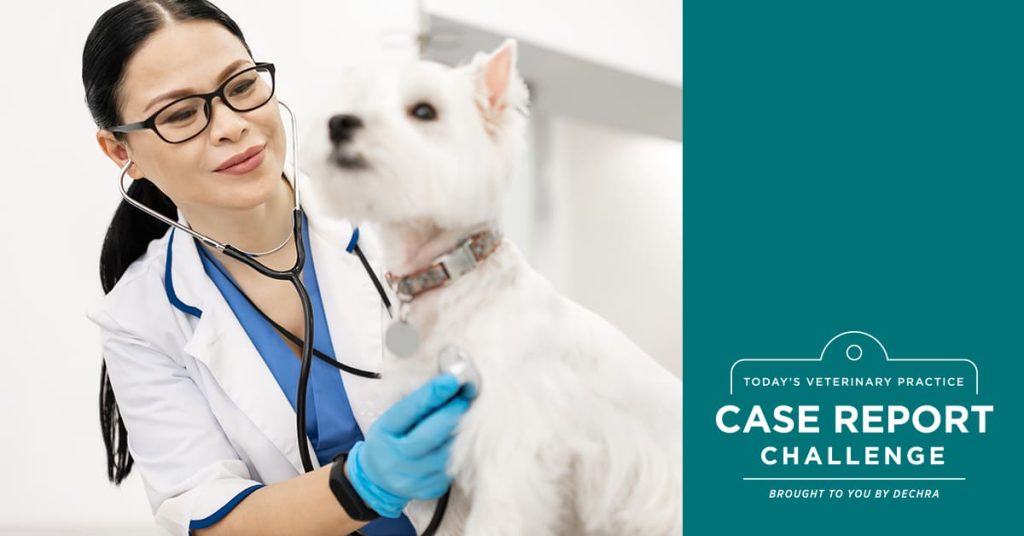[ad_1]
POST SUMMARY:
Dr. Gary Richter, MS, DVM, CVC, CVA, is a founding member and co-president of the VCS. The VCS was formed as a result of the struggles veterinarians in California have faced in regard to a policy that threatened a veterinarian’s license if they discussed cannabis with clients. VCS would like to help the veterinary profession by providing easy-to-access continuing education materials. The Veterinary Cannabis Society (VCS) was created with the goal of providing education on some of these topics. Research on the subject is still relatively scarce compared with other aspects of veterinary medicine. Many veterinarians don’t feel prepared to discuss the topic with clients, and states have varying laws that could confuse some clinicians.
The use of CBD supplements—and cannabis as a whole—is a hot and complicated topic in veterinary medicine. Research on the subject is still relatively scarce compared with other aspects of veterinary medicine, many veterinarians don’t feel prepared to discuss the topic with clients, and states have varying laws that could confuse and intimidate some clinicians. Despite these challenges, interest from clients and the development of new products are unlikely to slow down.
The Veterinary Cannabis Society (VCS) was created with the goal of providing education on some of these topics and helping veterinary professionals navigate this landscape. Gary Richter, MS, DVM, CVC, CVA, is a founding member and co-president of the VCS. Dr. Richter addressed his vision for the VCS and how interested veterinarians can get involved in the following Q&A.
TVP: What is the goal behind the Veterinary Cannabis Society?
Dr. Gary Richter: The VCS was formed as a result of the struggles veterinarians in California have faced in regard to a policy enacted by the California Veterinary Medical Board, which threatened a veterinarian’s license if they discussed cannabis with clients (see updated guidelines here ). This led to a years-long (and still ongoing) legislative fight to protect veterinarians and pets by creating a framework where veterinarians can recommend cannabis and medical cannabis products for animals created and sold in a safe manner.
Based on our experiences in California, a number of veterinarians and others got together and created the Veterinary Cannabis Society. Our goals are threefold:
- Educate veterinarians and pet owners about how cannabis can be used safely and effectively in animals.
- Promote sensible legislation on a state-by-state basis, which will allow veterinarians to recommend cannabis and require medical cannabis products for animals to be produced and sold in a safe and responsible manner.
- Work with the industry to provide guidelines on how products for animals need to be produced, labeled, and marketed in order for them to be safe for veterinary patients.
TVP: What are some of the main problems regarding education on cannabis in veterinary medicine?
Richter: Initially, one of the major problems with cannabis education and information was the lack of veterinary-specific research. Fortunately, that is rapidly changing as more and more veterinary-specific studies are being published. There is still a lot of misinformation and misunderstanding within the veterinary community as well as the general public when it comes to how cannabis can be used safely and effectively.
Another problem is the current regulatory landscape. When veterinarians are prohibited from discussing or recommending cannabis for their patients, they have less necessity to become educated on the use of medical cannabis for animals. As more and more states decide to take action and provide a legal path for veterinarians to discuss and recommend cannabis, many veterinarians are going to be caught under-educated when clients are coming in and asking about cannabis. VCS would like to help the veterinary profession by providing easy-to-access continuing education materials created by the leading experts in veterinary cannabis.
TVP: Have you seen these problems manifest in practice, or heard from those who have?
Richter: Absolutely. We routinely see clients come in with cannabis questions after they have asked their regular veterinarian who declined to talk with them about it. This may be due to fear of the Veterinary Medical Board but it is just as likely due to them being uncomfortable (under-educated) about the subject. The lack of education and understanding is highlighted by how intensely popular lectures about cannabis have been at veterinary conferences in the past several years.
TVP: How will the VCS help address this?
Richter: To begin with, the VCS website will provide a combination of free and member access to a wide range of educational materials about cannabis for animals. In addition, we are developing RACE-approved CE content. Accessing this content is as easy as going to the website. Veterinarians do not have to travel to a conference to become educated about medical cannabis.
In addition, we are also working to promote policies and legislation in states where cannabis is legal to ensure veterinarians will be able to safely recommend cannabis to their patients. Providing regulatory/legal protections for the professions paves the way for greater professional interest and education.
TVP: How should the profession as a whole work toward addressing these problems, and where does VCS fit in?
Richter: The profession needs to understand that cannabis (both hemp and cannabis with THC) are here to stay and, as veterinarians, we need to be part of the discussion with our clients in order to keep our patients safe. We can’t outsource client education about cannabis to budtenders at the local dispensary, workers at pet stores, or the internet. The research that has been published thus far is showing cannabis to be an effective therapeutic treatment. Despite some individuals’ prejudices about cannabis, we must recognize it as an effective medicine that, when used appropriately, is safer than many of the pharmaceuticals veterinarians use every day.
VCS fits in at every step of the process. We are working to change policy and regulations to protect practitioners. We are creating educational content to provide veterinarians with the tools they need to help their clients and patients. And we are working with the industry to make sure products are produced, labeled, and marketed safely.
TVP: Should the average practitioner be proactive in regard to veterinary cannabis? If so, what can they do?
Richter: It’s too late to be proactive as cannabis for animals is already on the shelf of nearly every pet store in the country. Veterinarians are already fielding daily questions about cannabis products for animals.
But they can become educated so they know how to provide the guidance pet owners are so desperately searching for. In addition, if they live in a state where the veterinary board or legal hurdles exist, they can get in touch with the VCS for help promoting necessary changes.
TVP: Why did you feel that cannabis as a focus needed its own society? Why not expand part of a group that exists?
Richter: Cannabis is unique in that it is a natural, plant-based medicine that in many ways acts as a pharmaceutical. It is, arguably the most broadly potent and effective natural medicine known to medical science. In addition, no other natural medicine has ever generated the kind of widespread interest and enthusiasm as medical cannabis has. Neither the federal government nor individual states have figured out how to regulate cannabis medicines for animals and veterinarians and pet owners are caught in the middle.
The regulatory issues and knowledge gap are so specific to cannabis, it necessitated the formation of a new nonprofit dedicated specifically to addressing these challenges.
TVP: What should practitioners look out for in regard to cannabis to try and be on the front foot of the issue?
Richter: To begin with, understand what your state regulations are in order to protect yourself professionally. Then, become educated about the endocannabinoid system, how cannabis interacts with it, and what the current research says about applications and appropriate dosing.
TVP: What are the next steps for the VCS?
Richter: The next step for VCS is to continue to create educational content for veterinarians and pet owners as well as maintain a library of curated research studies. All of this will be made available to VCS members. We will also continue to promote legislative and policy change in states where it is necessary to protect veterinarians and the pets we care for. We are planning an international symposium in June to discuss cannabis issues across the globe and our first in-person event will be at the American Holistic Veterinary Medical Association conference this Fall.
[ad_2]


